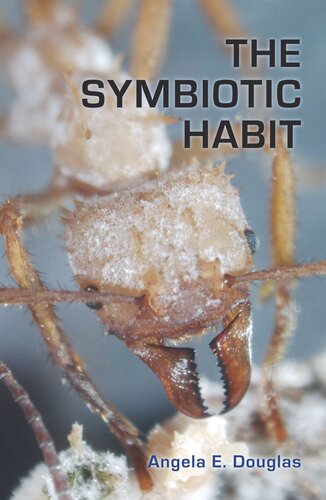

Most ebook files are in PDF format, so you can easily read them using various software such as Foxit Reader or directly on the Google Chrome browser.
Some ebook files are released by publishers in other formats such as .awz, .mobi, .epub, .fb2, etc. You may need to install specific software to read these formats on mobile/PC, such as Calibre.
Please read the tutorial at this link: https://ebookbell.com/faq
We offer FREE conversion to the popular formats you request; however, this may take some time. Therefore, right after payment, please email us, and we will try to provide the service as quickly as possible.
For some exceptional file formats or broken links (if any), please refrain from opening any disputes. Instead, email us first, and we will try to assist within a maximum of 6 hours.
EbookBell Team

4.0
36 reviewsThroughout the natural world, organisms have responded to predators, inadequate resources, or inclement conditions by forming ongoing mutually beneficial partnerships--or symbioses--with different species. Symbiosis is the foundation for major evolutionary events, such as the emergence of eukaryotes and plant eating among vertebrates, and is also a crucial factor in shaping many ecological communities. The Symbiotic Habit provides an accessible and authoritative introduction to symbiosis, describing how symbioses are established, function, and persist in evolutionary and ecological time.
Angela Douglas explains the evolutionary origins and development of symbiosis, and illustrates the principles of symbiosis using a variety of examples of symbiotic relationships as well as nonsymbiotic ones, such as parasitic or fleeting mutualistic associations. Although the reciprocal exchange of benefit is the key feature of symbioses, the benefits are often costly to provide, causing conflict among the partners. Douglas shows how these conflicts can be managed by a single controlling organism that may selectively reward cooperative partners, control partner transmission, and employ recognition mechanisms that discriminate between beneficial and potentially harmful or ineffective partners.
The Symbiotic Habit reveals the broad uniformity of symbiotic process across many different symbioses among organisms with diverse evolutionary histories, and demonstrates how symbioses can be used to manage ecosystems, enhance food production, and promote human health.